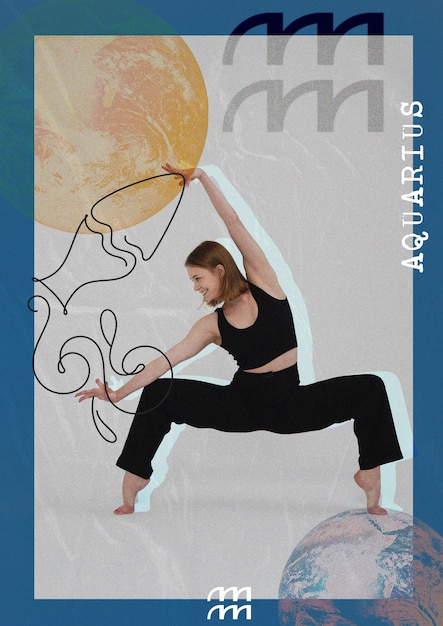
A yoga body isn’t just about flexible limbs; the ancient practice can also boost memory, heart, and bone health. Yoga has become a huge trend, with Brits spending a whopping £790 million a year on classes and mats.
While quirky yoga variations like rage or naked yoga and even dog yoga are popping up, science is also backing up yoga’s real benefits. Research from UCLA found that a three-month course of yoga and meditation was more effective than memory exercises at reducing age-related brain impairment. Another study showed that yoga could improve sleep in breast cancer survivors.
Lucy Edge, a former advertising executive, chose yoga over anti-depressants when she fell into a deep depression. After taking a six-month break to study yoga in India, she returned not with a ‘yoga goddess’ body, but much happier and content. She has since written three books on yoga and launched Yoga Meds, a part of her website Yogaclicks.com, which lists over 300 clinical trials showcasing yoga’s benefits for various health conditions.
If crossword puzzles and Sudoku are your go-tos for memory training, it might be time to try warrior poses instead. A UCLA study compared 12 weeks of memory exercises to a yoga and meditation course on 25 adults over 55. The yoga group showed better spatial and visual memory improvements, reduced depression and anxiety, and increased stress resilience.
No need for intense headstands to reap the benefits. The study participants practiced one hour of Kundalini yoga weekly, which includes breathing techniques, meditation, and some chanting of mantras. They also did 20 minutes daily of Kirtan Kriya, a type of meditation involving chanting, hand movements, and visualization.
Gentle yoga can also support heart health. A review in the European Journal of Preventative Cardiology suggested yoga might reduce heart disease risk as much as brisk walking. Stress, a major contributor to heart disease, is often managed well through yoga.
The benefits of yoga for emotional health, such as anxiety, stress, and depression, are well recognized. It can improve blood pressure, cholesterol, and weight – all risk factors for heart disease. Gentle yoga poses and restorative yoga can help reduce stress. Sarah Shone, a physiotherapist and yoga teacher, developed yoga classes for back pain patients, with 87% reporting reduced pain.
Yoga not only helps in conditions like lower back pain but also improves incontinence by targeting pelvic floor muscles and building bone density. Beginners should inform their teacher about any health issues and start with gentle styles like Hatha or Iyengar yoga.
Choosing the right yoga mat is crucial. Consider where you’ll keep it, how often you’ll transport it, and your height. A thicker mat can protect your joints and provide more comfort. Healthista recommends the Elephant Cork Yoga mat from Valka Yoga, which is eco-friendly, durable, and offers good joint support. Additionally, a matching yoga block can help with challenging poses.
For types of yoga, here’s what to choose:
– Yin or Restorative yoga for a relaxing, supported practice.
– Vinyasa Flow for an energetic, dance-like sequence.
– Iyengar yoga for precise postures and alignment, great for beginners.
– Anusara yoga for alignment-focused movements done to upbeat music.
– Yoga Therapy for healing injuries or illnesses through trained teachers.
Lucy Edge’s latest book “Down Dog Billionaire” is available on Amazon.